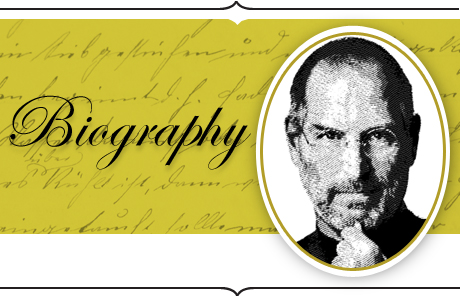Steve Jobs
Steve Jobs


He was no engineer. Not much of a programmer. He was something the world had not quite seen before: the technology business superstar. And perhaps, in our digital, corporate, and OEM world, it's just such stars that are today's inventors. It was Steve Jobs (1955 – 2011) that showed us how.
Jobs the baby was given up by his graduate student parents. This was, perhaps, his first great move. His adoptive parents, brought together thanks to a bet Paul Jobs made that he could find a wife in two weeks, settled in Silicon Valley. Father Paul was a mechanic and in the garage he and Steve would tinker endlessly.
The bright young Steve was a prankster. He hung posters in school advertising "Bring Your Pet to School Day," and set off explosives beneath his teacher's chair. When sent home for such deeds his father blamed the school for not keeping him engaged.
His best friend in high school was, famously, Steve Wozniak, an electronics maniac. When Wozniak first discovered the early hacker's device known as the "blue box," which allowed the user to make free phone calls, he called Jobs in a frenzy. They had to make them. And they did. The experience taught Jobs more than just how make free calls. He learned how to work with his friend to build an electronics product.
But before the pair would do that, more famously, in the family garage, young Jobs had some inner searching to tackle first. He dropped out of Reed College after six months, then took up a job at Atari and quit that, too. He had too much consciousness exploring to do: primal scream therapy, LSD, a trip to India.
Upon his return, he started attending the Homebrew Computer Club with Wozniak. Impressed by the assemblage of parts that Wozniak had put together, which would display a character on a screen after a tap on a keyboard, Jobs proposed making and selling computers together. Wozniak sold his prize calculator, Jobs his VW bus, and with the resultant capital—$1300—Apple was born.
Wozniak had the technical ability, Jobs the business sense. Together they made $774,000 with the Apple I, then $139 million with the Apple II. Jobs lured Coca-Cola CEO John Scully to join them as president.
Scully turned Apple into big business, but, after some less successful products, and with the company trailing IBM's PCs in the marketplace, Scully edged Jobs out.
Jobs retaliated by starting NeXT, where he could build computers according to his vision. He also bought Pixar from George Lucas for $50 million of his own money. While Pixar went on to triumph with its Toy Stories and Nemos, NeXT didn't quite appeal to the masses.
"Appealing to the masses," though, would be a good way to describe Apple products after Jobs rejoined the company, officially in 1997. Better yet would be "dictating appeal to the masses." Jobs taught the world how to lust after electronics with all things "i." iMacs, iPods, iPads, and iTunes turned the company into one of the most successful and the most loved. Few other corporations have fans.
His business was on the rise, but his health was not. Diagnosed with pancreatic cancer in 2003, he spent nine months trying alternative health remedies before agreeing to the surgery that his family begged him to have. Arguably, the delay cost him his life. Seven years later, he succumbed to the disease.
He might have died sooner had he not made certain demands of his body, or of God. Having yearned to see his son graduate, he made a "deal with God or whatever, which was that I really wanted to see Reed graduate, and that got me through 2009," he told his biographer.
Demands were what defined Jobs' career, and the excellence of his products. He demanded that his designers bring him efficient, beautiful designs, demanded that his programmers make his visions become reality, demanded that his factories, products, and home conform to the precision of what he had in mind. Sony's Jonathan Ive said, when frustrated, Jobs' "way to achieve catharsisis to hurt somebody. And I think he feels he has a liberty and a license to do that. The normal rules of social engagement, he feels, don't apply to him." Though it may have been less than pleasant for those around him, it was his sense of exception, of the rightness of his demands, which gave us our iPads.
Michael Abrams is an independent writer.
Wozniak sold his prize calculator, Jobs his VW bus, and with the resultant capital—$1300—Apple was born.




